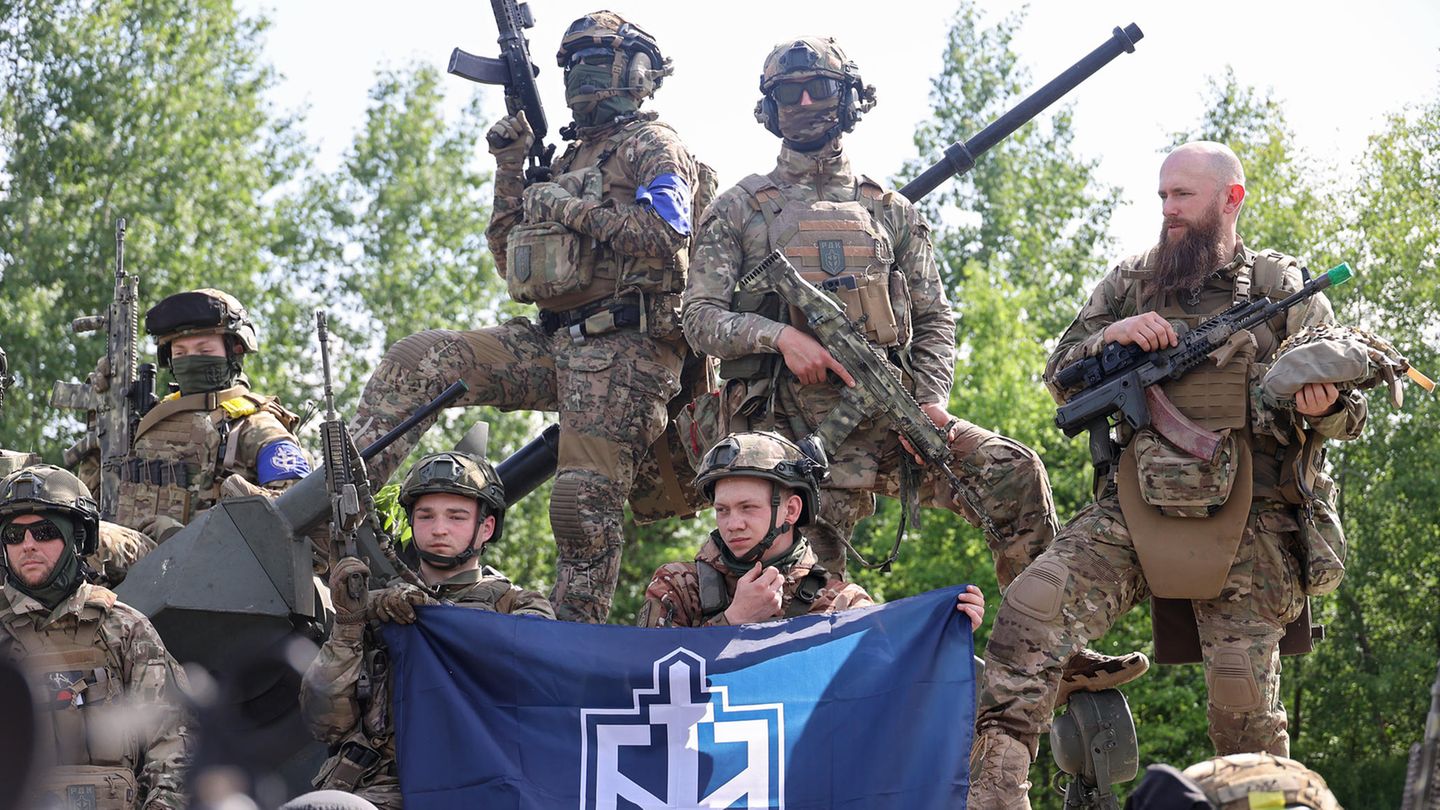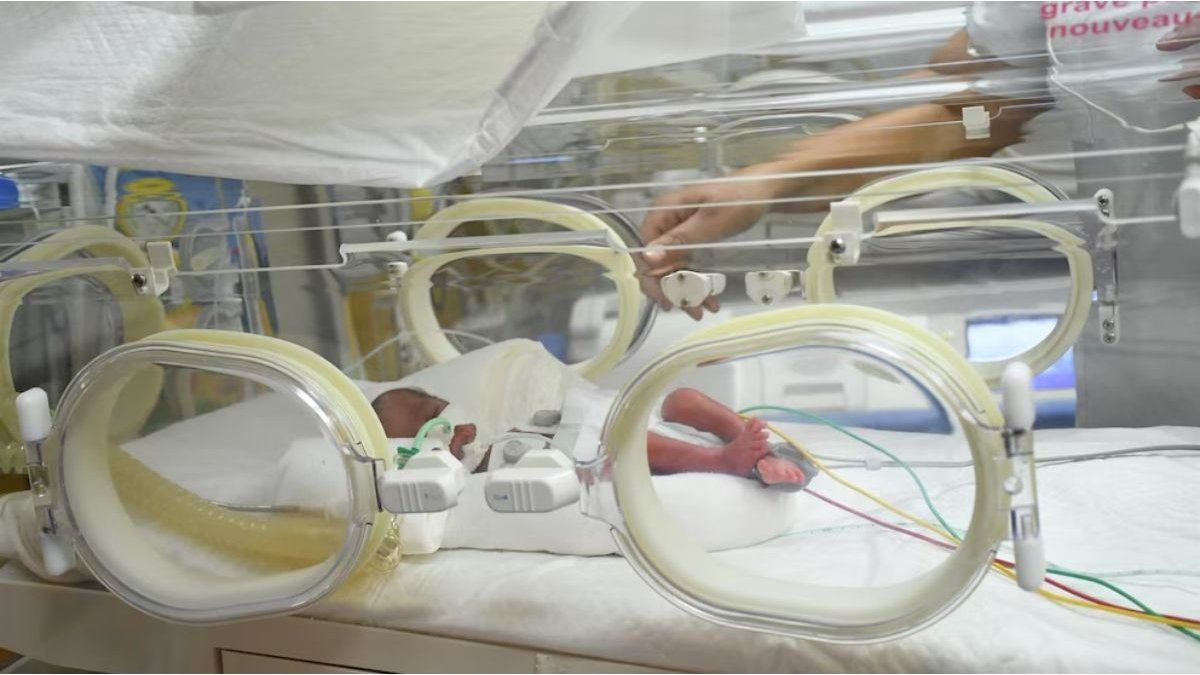The Russian partisan troop “Legion Freedom of Russia” fighting on the side of Ukraine announces new strikes against their homeland. In an interview, the leader of “Casear” also spoke about the end of Vladimir Putin’s rule.
Strictly speaking, an announced surprise is not a surprise, but sometimes that is exactly why it develops its full force. And it’s not the first time that the partisans of the “Legion for the Freedom of Russia” have announced their deployment in advance. “There will be another surprise next month,” announced Russian soldiers fighting on the side of Ukraine against the rule of Kremlin chief Vladimir Putin. “It will be our third operation,” said the commander, who calls himself Ceasar, in a . After that there will be a fourth and a fifth. “We have ambitious plans, we want to liberate the entire area.”
Governor had to negotiate with partisans
It’s been around five weeks since the Freedom Legion last caused astonishment in the West and horror in Russia. At the end of May, the few hundred anti-Putin fighters, together with the “Russian Volunteer Corps” rebel group, attacked the region around Belgorod on the Ukrainian border. At that time, Russia failed to protect its border efficiently. Although many details of the attack on Russian territory are unclear, it became known that around 4,000 residents had left their homes and that the governor of the region had to negotiate with the partisans about the release of ten captured soldiers.
Ceasar, the leader of the “Legion”, also describes how easy it was to capture the villages near the Belgorod border region: “The border guards just ran away. I didn’t have a chance to show them my Russian passport”. Not much is known about the man himself. His real name is Maximillian Andronnikov, he was a fitness instructor and a member of an ultra-nationalist group called the “Russian Imperial Movement”. He became an opponent of Putin when he annexed Crimea, and after the war began he went to Ukraine.
Are the partisans controlled by Ukraine?
The militias hailed each of their operations “taking place on the territory of Russia” as a success. Because it “forces the military leadership to move a large number of forces to exactly the quadrant, and thus to expose some parts of the front, parts of the border,” as the leader of the “Volunteer Corps”, Denis Kapustin, said at the time. He, as well as the leadership of the “Legion for the Freedom of Russia” is considered at least right-wing extremist. Kapustin came to Germany as a refugee from Russia in the early 2000s and was described as one of the “most influential neo-Nazis” by the Office for the Protection of the Constitution in Cologne.
After the end of the fighting in Russia, the Kremlin published pictures of “captured” rebel military vehicles, which were probably staged. They were of American design, leading Moscow to claim that the “Legion” and “Volunteer Corps” were equipped by Ukraine and its Western partners. However, the government in Kiev rejected any such cooperation. How exactly the roles are distributed between the official troops and the partisans is largely unclear. However, some observers believe the groups are some kind of public relations operation by the Ukrainian military intelligence service.
“Capitalizing on the Prigozhin mutiny”
The timing of a new “nasty surprise” by the “Legion for the Freedom of Russia” was not accidentally chosen. According to leader Ceasar, the group wants to “capitalize on the unrest following Yevgeny Prigozhin’s mutiny.” At the end of June, the head of the Wagner mercenary group moved with a few thousand soldiers via Rostov-on-Don in the direction of Moscow and was able to take control of two large cities without any resistance worth mentioning. Although the Kremlin chief was furious at the “betrayal,” Prigozhin and his soldiers have gotten away with it so far.
Caesar believes that Prigozhin’s “uprising” has weakened Putin. There is great dissatisfaction within the Russian military, among other things because of the lack of pay. Putin’s rule is cracked and unstable. “It will have collapsed by the end of 2024.”
Sources: DPA, AFP, , “The Guardian”, , ,
Source: Stern
I have been working in the news industry for over 6 years, first as a reporter and now as an editor. I have covered politics extensively, and my work has appeared in major newspapers and online news outlets around the world. In addition to my writing, I also contribute regularly to 24 Hours World.




